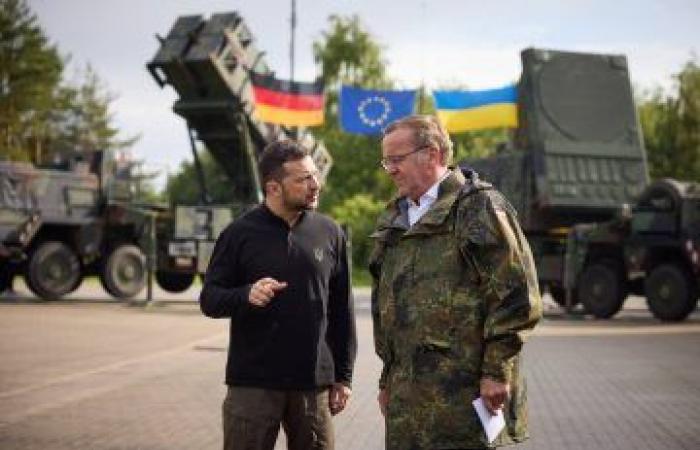On 17 June on the German radio network Cosmo – WDR the debate in the program Cosmo Italiano (in Italian) took stock of the plans for semi-compulsory military service in Germany in a program by Filippo Proietti, Giulio Galoppo and Cristiano Cruciani with the interview with Gianandrea Gaiani director of Analysis Defense
Auswahlwehrdienst, the “selective military service”
Defense Minister Boris Pistorius has presented a plan for a new form of military service, on the premise that the Bundeswehr personnel situation is constantly deteriorating. Last year the Bundeswehr had only just over 181,000 soldiers, against an estimated requirement of 203,000, but realistically speaking, following the war in Ukraine and NATO requests, it should have at least 270,000. The Minister of Defense also points out that a “stable reserve” of soldiers is certainly necessary, of around 200,000 units.
This is not a return to compulsory military service. Pistorius speaks rather of “Auswahlwehrdienst”, that is, “selective military service”, which should be voluntary, but, if necessary, also include mandatory elements. The only obligation under the concept of German military service is that young men must fill out a questionnaire on whether or not they are willing to join the Bundeswehr, which they receive when they turn 18. Young eighteen-year-olds will also receive the questionnaire, but will not be obliged to complete it.
The Bundeswehr then checks the returned questionnaires and invites only those who appear particularly suitable and motivated for military service to participate in the draft. Those selected are required to report for military service and for the physical examination. After that, if they wish, they will undertake six months of basic military service, which can be voluntarily extended up to 17 months. No one will be forced.
No obligation for women
To force young women to serve, the Constitution would first need to be amended. Article 12a currently states: “Men may be obliged to serve in the armed forces, in the Federal Border Guard or in a civil protection organization from the age of eighteen.”
The reaction of the government coalition
The ruling coalition resisted compulsory military service. Pistorius did not obtain a majority in favor of his proposal in the coalition, nor in his own party, the SPD, and in the Chancellery in particular.
The secretaries of the SPD, Lars Klingbeil and Saskia Esken, for example, spoke out in favor of maintaining voluntary recruitment, convinced that self-determination is fundamental in a democratic system.
The leader of the Green Party, Omid Nouripour, has made it clear that he is against compulsory military service, as has the FDP, the liberal party, according to which the necessary resources in terms of money, infrastructure and training must be used to improve the volunteer army and strengthen the reservists. However, lately, liberals seem to be opening up to the idea of Pistorius. The new president of the Defense commission, the FDP politician Marcus Faber, welcomed the minister’s proposal.
The reaction of the opposition parties
CDU/CSU are in favor of compulsory military service and would go even further by making an amendment to the Constitution that would also make it mandatory for women to complete the questionnaire for military service. They therefore consider Pistorius’ proposal to be weak and would immediately opt for compulsory military service.
The AfD, for its part, calls for the reinstatement of basic military service for all male German citizens aged between 18 and 25.
The left-wing Die Linke party, however, is decidedly against it, according to which Pistorius’ plan is – and I quote – “a preparatory measure for the reintroduction of compulsory military service”. For Linke, there is no real risk situation that justifies such interference in young people’s right to self-determination.
Military service in Europe
In some European countries the naja is already in force: in Cyprus, in Greece, in Austria, where it is in force for all male citizens. Or in the Baltic countries, and therefore in Lithuania, Estonia, and Latvia, which introduced it in April 2023 due to the Russian threat. Finally in the Scandinavian countries: Finland, Denmark and Sweden. The latter provides it for both men and women. And even in Italy there is discussion about its reintroduction, twenty years after its abolition.
Minister Matteo Salvini is in favor and has proposed a bill with his party. Defense Minister Crosetto, however, is against it. We spoke about the new debate around the reintroduction or otherwise of military service in various countries Gianandrea Gaiani, director of Defense Analysis, who underlines how, on balance, no politician can afford to impose compulsory military service. The loss of votes would be an immediate consequence.
At this link the radio audio





